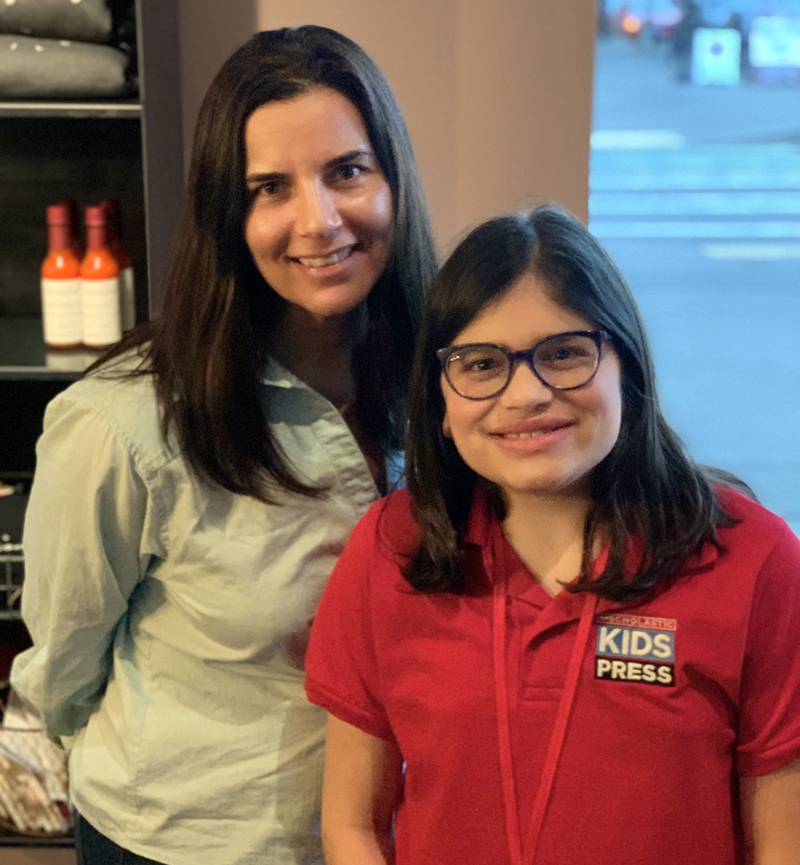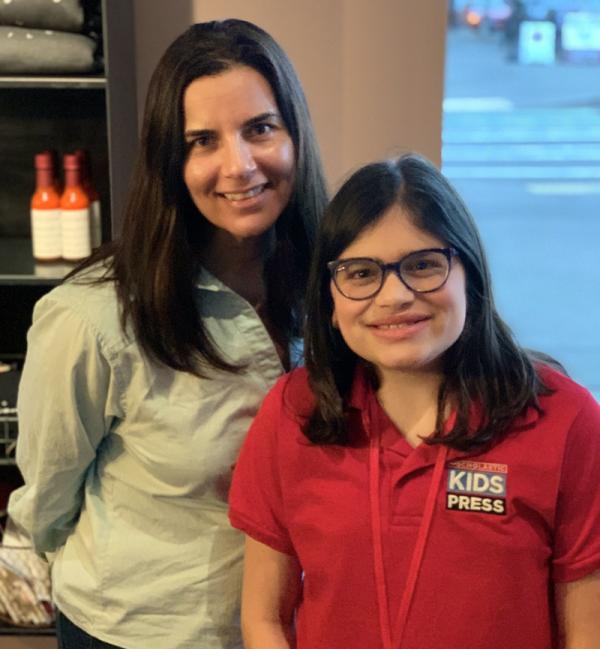KID REPORTERS’ NOTEBOOK
The Power of Money in Elections


Zoe with Lindsay Roitman, director of the Microsoft PAC.
An estimated $14 billion will be spent in this election cycle. That’s more than double what was spent in 2016.
Much of the money raised by candidates comes from individuals who want to show their support for the candidate’s ideas. Political action committees, known as PACs, do the same thing on a much larger scale.
“A PAC is a way for a bunch of individuals to pool their money and express what their political priorities are by giving money to political candidates they believe in,” says Lindsay Roitman, director of Microsoft’s political action committee. PACs can support federal, state or local candidates.
There are many different types of PACs, including corporate, issues-related, and super PACs. Corporate PACs are started by company employees. The money is given by the employees themselves, not the actual company. All of the money given has to be reported, and strict election laws must be followed.
Some candidates don’t take corporate PAC money because they want to show that they aren’t influenced by big companies. “They might say, ‘I don’t take corporate PAC money,’ but it’s actually not from the company, it’s from the employees," Roitman says. “They do it because it sounds good as a campaign promise.”
When corporations give money, they often expect something in return. An oil company, for example, might give money so that they can have greater influence over laws for drilling oil. A tech company might seek to have more control over regulations that govern the communications industry.
LIMITS ON SUPPORT
Issues-related PACs are focused on donors’ specific causes. Such issues can include climate change, immigration, gun control, and even electing more women and people of color to political offices. Roitman founded WeRepresent Washington in 2017, for example. The PAC focused on electing progressive women to state and federal office in key swing states.
Wealthy donors, corporations, and special interest groups have always had influence on elections. So-called super PACs can support—or oppose—candidates with unlimited money without making public disclosures. The money can come from one person or family, versus a group of people.
Many voters find PACs confusing because there are so many rules to follow. Overall, the idea is to support candidates you believe in. But it is illegal to make deals with candidates in exchange for money.
“If a PAC said, ‘We’ll give you this money if you sponsor this piece of legislation,’ you can’t do that,” Roitman explains. “There are very clear laws that we have to follow.”
